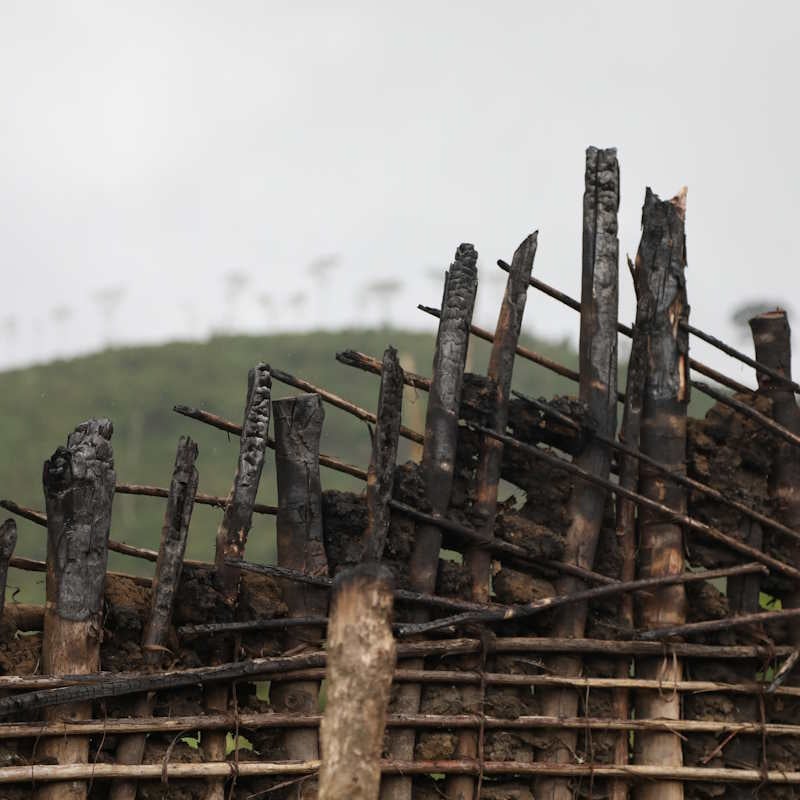
Coercive conservation is broken: Side event to the UNPFII
Coercive Conservation Is Broken: How Failure to Uphold Indigenous Land Rights Has Led to Conflict, Human Rights Violations and Environmental Destruction in the Kahuzi-Biega National Park (PNKB)
UN Permanent Forum on Indigenous Issues – Side Event Hosted by Minority Rights Group International
29 April 2021 at 11:15 am EDT / 4:15 pm BST / 5:15 pm Bukavu
This panel will explore how failure to uphold indigenous peoples’ land rights and lack of meaningful access to redress lie at the heart of a broken conservation model that is fuelling human rights abuses, conflict and environmental degradation, using the situation of the Batwa of the Kahuzi-Biega National Park (PNKB) as a paradigmatic example of these failings.
In the 1970s, the Democratic Republic of Congo (DRC) expelled the indigenous Batwa people from their ancestral lands in the PKNB without their consent or prior consultation. Deprived of their land and effectively prevented from practicing their traditional livelihoods (including their religious and cultural practices), they are forced to live as squatters on the outskirts of the park. They experience entrenched discrimination and are denied access to justice and basic social services. They suffer a high rate of malnutrition, disease, and mortality as a result. Members of the community who return to their ancestral lands to exercise their culture, gather medicinal plants, forage for food or to hunt are detained, beaten and shot by ecoguards who violently police the boundaries of the park.
The Batwa have not been compensated for the loss of their lands or offered any resettlement options. Domestic litigation instituted on behalf of the Batwa in 2008 has been ineffective. Although the African Commission on Human and Peoples’ Rights seized itself of a communication lodged on behalf of the Batwa in February 2016, the case remains pending on the merits.
Excessive delays in the resolution of their claims coupled with conditions of extreme deprivation on the outskirts of the park have driven some members of the community to resettle within the boundaries of the PNKB. This has led to an escalating conflict between the Batwa and PNKB authorities. Ecoguards aided by the DRC army have resorted to collective punishment, raiding Batwa villages, burning down homes, destroying property and inflicting severe violence and death on members of the community.
Panelists will address how a human rights based approach to conservation is necessary not only from a rule of law and institution and peace building perspective, but also from a sustainability and environmental perspective. Panelists will also be asked to reflect on the role indigenous peoples and local communities should play in conservation (and, in particular, how recognition of customary land rights offers a sustainable alternative to the predominant conservation model).
Moderator: Felana Rakotovao, Indigenous Peoples Programme Coordinator, Rainforest Foundation Norway (RFN)
Panellists:
- Shauri Mulimo, Batwa leader evicted from the Kahuzi-Biega National Park, living in the Lukungula host village in Kalehe
- Maître Innocent Bisimwa, litigator before the Sud Kivu courts accompanying the Batwa and local communities and technical councillor at the Environnement, Ressources Naturelles et Développement (ERND) Institute
- Candy Ofime, lawyer, Minority Rights Group International (MRG)
- Lassana Koné, lawyer, Forest Peoples Programme (FPP)
Registration is now closed for this event.


